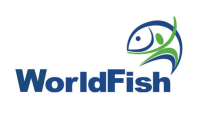Working with journalists in Bangladesh to educate the public on aquatic food systems
Published on: November 29, 2022, Submitted by Maherin Ahmed on: November 28, 2022
WorldFish in Bangladesh took the initiative to hold an interactive media session on aquatic food systems reporting on 19 June 2022 together with the Bangladesh Agricultural Journalists Forum (BAJF) to increase the media's sensitivity to aquatic food systems in Northwest Bangladesh as well as to share the underlying issues surrounding the aquatic foods sector.
journalists participating in media info session
WorldFish in Bangladesh took the initiative to hold an interactive media session on aquatic food systems reporting on 19 June 2022 together with the Bangladesh Agricultural Journalists Forum (BAJF) to increase the media's sensitivity to aquatic food systems in Northwest Bangladesh as well as to share the underlying issues surrounding the aquatic foods sector.
The session was held in Dhaka with 20 journalists from 15 news organizations attending. The technical staff of the Aquaculture: Increasing Income, Diversifying Diets and Empowering Women project in Bangladesh shared with them WorldFish’s work in Bangladesh as well as aquatic food systems in general.
Among the topics covered were aspects of private sector engagement activities, key partnerships, ways of empowering women in aquatic food systems, steps being taken to improve nutritional status, the impact of consuming indigenous species of small fish on household nutrition, the quality of seeds for sustainable aquaculture and initiatives to improve national policies.
Delivering accurate information to the public
Alvaro Paz Mendez, project manager at WorldFish underlined the importance of journalists in engaging with the people and delivering accurate information to the public.
“WorldFish wishes to support journalists in producing stories and sharing information to the public by providing them with adequate knowledge and assistance,” said Mendez.
Mendez introduced WorldFish’s website to members of the press where technical information and guidance can be easily obtained. He encouraged the journalists to share the knowledge they have learned from the website as well as from attending press briefings and public sessions.
Mendez also expressed hope that journalists will play a role in sharing information that brings positive behavioral change, such as encouraging the consumption of small fish that contains high nutritional benefits and inspiring more women to participate in aquatic food systems.
Investing time and energy to better equip journalists
The session was facilitated by BAJF Research Secretary Sushanta Sinha, who is also a special correspondent for Channel 71.
“We thank WorldFish for taking the initiative to brief us on the aquatic foods sector landscape in Northwest Bangladesh,” said Sinha on behalf of the journalists present.
“It is important that farmers get the right information at the right time to achieve the most from their venture. Getting timely access to the success stories of research organizations such as WorldFish would greatly benefit the farmers in Bangladesh. We will do our part to help disseminate the information as widely as possible so as many farmers will benefit from it,” added Sinha.
Following the exchange of information, the journalists brainstormed potential stories to write touching on various topics related to aquatic food systems. The discussions were participatory with journalists asking questions and focusing on crucial themes when reporting on aquatic food systems.
At the end of the media sensitization session, BAJF President Iftekhar Mahmud commended WorldFish for its readiness to invest in journalists and welcomes more such initiatives in the future.
"We need sessions such as the one we had today. Perhaps a pleasant collaboration will emerge from this as well as increased awareness of other issues," said Mahmud.
Acknowledgement
Thanks to Shahin, Shaima Arzuman; Bhattacharjee, Debasish ; Haque, S. M. Faridul; Zahura; Alvaro Paz Mendez; Manos Saha; Yeasin; Ashraf; Benoy Barman; Peerzadi Rumana Hossain; contribution as presenters in the session.
This work was undertaken as part of the CGIAR Research Program on Fish Agri-Food Systems (FISH) led by WorldFish. The program is supported by contributors to the CGIAR Trust Fund. Funding support for this work was provided by Bill and Melinda Gates Foundation under the framework of Aquaculture: Increasing incomes, diversifying diets and empowering women in Bangladesh and Nigeria (IDEA) project.
Projects
-
IDEA - Aquaculture: increasing income, diversifying diets, and empowering women in Bangladesh and Nigeria



